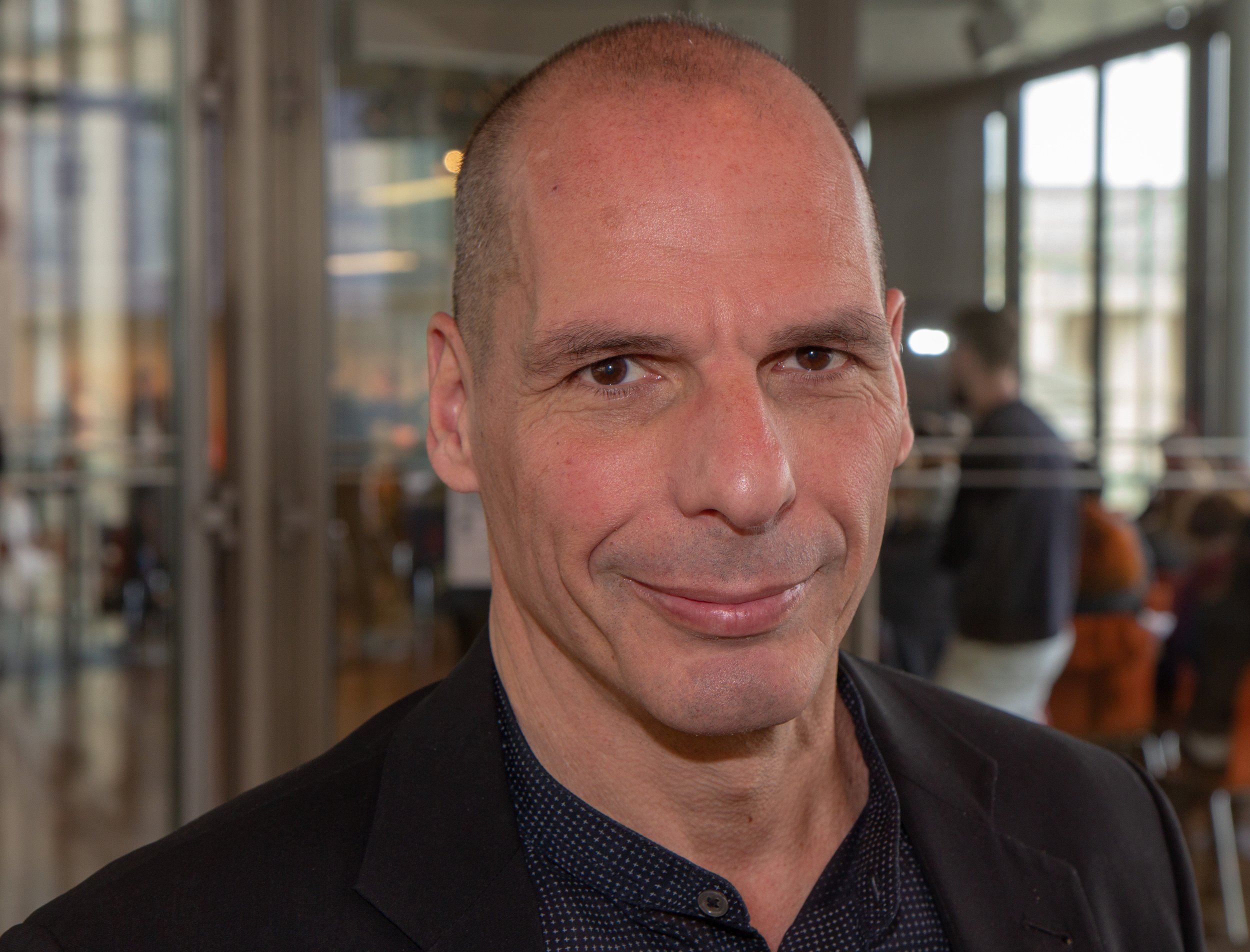What's Wrong With Yanis Varoufakis
The answer will quickly be apparent.
Yanis Varoufakis is a deep thinker with skin in the game, and he's been busy fighting for what he believes in for a long time.
Yanis Varoufakis
Here is a brief bio from Berliner Festspiele. "Berliner Festspiele stand for a cultural programme where the new becomes visible."
Yanis Varoufakis is an economist and politician who, as Greece's finance minister in 2015, led the struggle against the European Union's and the International Monetary Fund's austerity and bank bailout policies. Since then, he co-founded DiEM25 (the Democracy in Europe Movement) and is the leader of MeRA25, DiEM25's political party in Greece. Before his election to Greece's Parliament, Varoufakis taught economics in universities in Britain, Australia, the United States, and Greece for three decades. He holds a chair in economic theory at the University of Athens and is Honorary Professor of Political Economy at the University of Sydney, Honoris Causa Professor of Law, Economics and Finance at the University of Torino, Visiting Professor of Political Economy at King's College, London, and Doctor of the University Honoris Causa at the University of Sussex. His best-selling books include: "Adults in the Room: My struggle against Europe's and America's Deep Establishment" (London: The Bodley Head); "Talking to My Daughter About the Economy: A brief history of capitalism" (London: The Bodley Head), "And the Weak Suffer What They Must? Europe's crisis and America's economic future" (New York: Nation Books, 2016); and "The Global Minotaur: America, Europe and the Future of the World Economy" (London: Zed Books, 2011,2015).
As with any public figure in politics, he has his opponents, detractors, and critics. An excellent place to start to understand what people have made of his work, particularly during the Greek debt crisis, start here: A critical review of the critical reviews of the book' Adults in the Room by Yanis Varoufakis.
As Adam Tooze writes in his indispensable overview of the critiques, the debate around Yanis Varoufakis's account relates to Europe's political economy, and in particular to the question of how to break away from the neoliberal policies that have dominated the history of the "Old World" for decades, and what strategy to adopt to do it.
Here is a review of his recent book, which I have read, "Talking to My Daughter About the Economy."
And for a hard look at his book "Adults in the Room," which I have read, I refer you to this article from The New Republic:
"If you are not the sort of person who is already likely to read a 500-page book on the former Greek finance minister's efforts to save his country from the machinations of the International Monetary Fund, then you aren't going to become one because I leave you in suspense. So let me spoil Yanis Varoufakis's Adults in the Room for you now. He failed."
Yanis Varoufakis is currently active in a political movement he helped found, DiEM25.
"DiEM25 is a pan-European movement of democrats, united under the conclusion that the European Union will only survive if it is radically transformed."
I am sure you know where I stand already. Yanis Veoufakis is a flawed but committed campaigner for the progressive transformation of our current institutions. He is a good man trying his best to make a difference without allaying himself with the destructive forces that run our global political, financial, and economic system.
Have a look at this and decide what you think.
Is neutrality Ukraine's best option?
So let me tell you what motivated me to write this brief post. I often encounter trolls (sorry for the disrespect, but that's all you are) who have read something about someone somewhere and instantly decided that they hated someone based on an article or two. This form of narrow-minded and dogmatic judgment most likely arises because something about the critique of the person in question excited a response. The troll thinks, "Yes, this makes sense, so and so is an idiot, all bad, and I see it now. I vehemently concur with the article in the Economist or the New York Times or so-and-so’s blog.”
Generally speaking, most trolls have a shallow understanding of what they criticize. They may not even know much about the domains surrounding the subject, or if they do have some knowledge, it's based on having read a book or an article. People are three-dimensional, to say the least, and politics, economics, big business, and geopolitics are complex subjects.
A troll is comfortable with one sentence or two parroted from their meager sources that are supposed to sound final—a kind of mic drop. They will say things like: "She messed up this or that!" "He is responsible for wrecking everything!" No further comment needed, nothing constructive, no alternatives, not even an honorable mention of who would have done better, what might have been a better outcome, who might have been a better leader, or how things might have been done more effectively. "He's stupid, he's bad, enough said, and if you post anything ever again about this villain, I'll repeat myself until you finally understand how stupid you are to pay attention to this guy." Trust me, I am not immune to this kind of childishness, we are still living in the Trump era whether you believe it or not. (Giggle.)
I'd suggest people withhold their opinions until they have something constructive to say. Go back and study political philosophy, read up on various points of view on events, read primary sources concerning the subject from earnest people who have formed their opinions through hard work.
What have you done lately? Are you a Player?
Regardless of who you dislike or whether this little blog poster agrees with you or not, make an effort to provide good sources and arguments for your beliefs so I can learn something from you.
Maybe we will all be able to imagine our own, Another Now.


